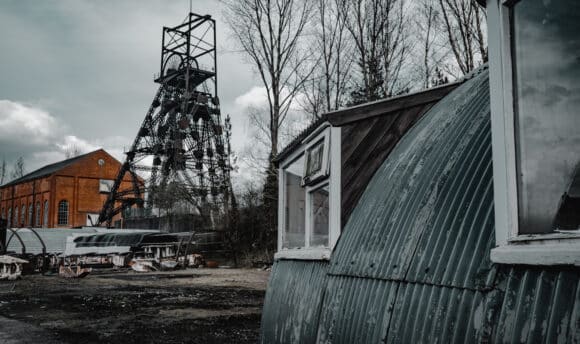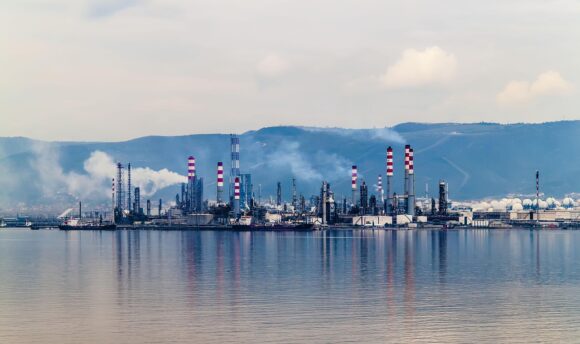The world’s biggest reinsurance companies are slowly moving away from reinsuring coal projects and companies. In March 2021, Swiss Re, one of the world’s biggest reinsurance companies, made a commitment to gradually eliminate coal from its treaty reinsurance. Since June 2021, Munich Re, Hannover Re and SCOR, which together with Swiss Re make four of the world’s biggest reinsurance companies with a market share of over 43%, are discussing how to follow Swiss Re’s approach.
Still heavily dependent on coal power generation, with an old and polluting fleet, Bulgaria is arguably one of the most reluctant EU member states to embark on a transformation path. On average, nearly 40% of Bulgaria’s electricity has come from coal power plants and during colder winters this percentage can go up to 60. Despite the clear signs from global markets, from the EU and from the dire financial situation of the state-owned coal assets, the government has continuously dodged the discussion on a coal phase-out timeline. It is so far unclear whether the current Bulgarian government will take the political responsibility for such a decision.
The introduction of climate policies in the insurance sector is already making waves in Bulgaria, primarily through the presence of international insurers whose climate policies prevent them from underwriting coal assets. Most recently, the state-owned Maritsa Iztok 2 coal power plant had to cancel the public tender procedure for Fire and Natural Disasters insurance as not a single offer was submitted despite an extension to the deadline. Earlier in 2021, the state-owned coal mining company opened a tender for damage and loss insurance prompting only two local insurers to participate. The winner, OZK Insurance, has yet to make any meaningful climate commitments that indicate it aims to align its business with the goals of the Paris Agreement.
OZK Insurance, the Bulgarian insurer, is owned by companies controlled by the businessman Hristo Kovachki, whose energy fleet consists of some of the oldest and most polluting coal power plants in Bulgaria – Bobov Dol, Brikel and Maritsa 3. These plants are notorious for the toxic air pollution coming out of their stacks and damaging the health of local communities and the environment. The Kovachki empire comprises three additional lignite-based district heating plants that produce both heating and electricity and five other district heating plants using fossil gas in major cities in Bulgaria. Moreover, this economic network is supported by eight coal mines in Bulgaria through blurred ownership via offshore companies and other connected people listed as owners in the registers.
In recent statements, OZK’s CEO Alexander Lichev said that “[OZK] has no refusal to reinsurance of coal and coal operations” and that “We have reason to believe that at least by 2035 this activity will be accepted by the reinsurers with whom we work”. Reinsurers with any interest in preventing climate breakdown should stay far away from OZK in both their facultative and treaty business.
Lack of clear guidance on how to transition beyond coal has led to the economic downturn in the oldest coal region of Bobov dol in the southwestern part of Bulgaria, where underground coal mines were shut in a matter of months with no transition plan whatsoever, leaving workers unemployed and causing a mass exodus from the region. With the rise of CO2 emission allowances’ prices in the last years, the Kovachki power plants have been looking for cheaper fuel alternatives such as municipal waste and have oftentimes burnt it illegally. In response to the potential health and environmental hazards of these operations, local communities have staged continuous protests and waste burning in coal power plants has become an issue of national discontent.
Subsidising a switch to different fuels is also being considered – like waste biomass, controversially considered a CO2-free fuel by the EU’s Renewable Energy Directive. It is therefore seen as an economically viable replacement for coal, despite having other polluting emissions compatible with coal. An investigation by the Organized Crime and Corruption Reporting Project (OCCRP) in July 2021 alleged that the Kovachki plants may have saved up to 30 million euro through under-reporting emissions. The accounting was justified with the use of alternative fuels.
What is more, a company owned by Hristo Kovachki is pursuing construction of a new lignite greenfield mine in a region 40 km away from the capital of Bulgaria – Sofia. The territory of the future mine is bordering several villages: Bratushkovo, Radulovtzi, Barlozhnitza, all part of the Slivnitsa Municipality. In some places, the proposed mine is only 300 meters away from the houses of the people, and, if this coal mine is built, the water source of Radulovtzi village will be jeopardised.
The region for Kovachki’s proposed mine has been developing very well in recent years as a tourist destination due to its proximity to Bulgaria’s capital. It has two lakes, ecotrails, new roads, and has already developed sport activities on the lakes. All opportunities for future development of this region would be demolished by the new mine. Given the climate commitments of international insurers present in Bulgaria and the declarations of smaller companies that they neither insure coal assets currently, nor plan to do so in the future, OZK Insurance is the likely candidate to insure the proposed mine’s construction and operation.
For two years now, a local farmer and the Municipality of Slivnitsa have been fighting against the opening of this lignite mine, challenging the project in court with the support of Greenpeace Bulgaria, Friends of the Earth Bulgaria (Za Zemiata) and ClientEarth.
Regardless of whether its retreat from the coal sector would be swift or prolonged, the private circle that controls Bulgarian coal assets is focused on maximising profits at all costs. Under the current institutional framework in Bulgaria this would inevitably lead to compromising the environment, socialising the massive losses of their business structure, and disrupting the livelihoods of thousands of people.
The role of reinsurance companies in managing global risk is growing and the costs of treaty reinsurance for insurance companies with little interest in implementing credible fossil fuel phase out plans will increase over time. Gradual withdrawal of cover by insurance and, even more importantly, first signs of withdrawal of treaty reinsurance from coal already mean higher coal insurance and reinsurance premiums on the hardening market. CEOs of coal companies in India, South Africa, Australia, U.S., Czech Republic and Poland have complained about the rising costs and difficulty obtaining insurance and reinsurance cover. Global insurance broker Willis Towers Watson reported coal insurance price hikes between 40% and 400%. Coal utilities and management are naming insurance as the biggest single financial cost they face.
Together with other factors undermining the profitability of coal generation and mining in the EU-27, such as the rising EU ETS CO2 allowance prices, falling price of new renewables and increasing costs of pollution abatement technologies required by the EU legislation, insurance and reinsurance price increases are one more factor that will speed up the coal phase out across the EU, including in coal-addicted countries like Bulgaria. The reinsurance market is very concentrated with the 20 biggest reinsurance companies collecting over 90% of global gross written premiums. Decisions made by the biggest European reinsurance companies will have a direct impact on the capacity of smaller national insurers such as OZK Insurance for coal mines and power plants in Bulgaria and the costs of such insurance.
All reinsurance companies renewing contracts with OZK Insurance should demand that it will not cover the construction of the new mine and inform OZK Insurance that both facultative and treaty reinsurance for the new mine will be rejected.



